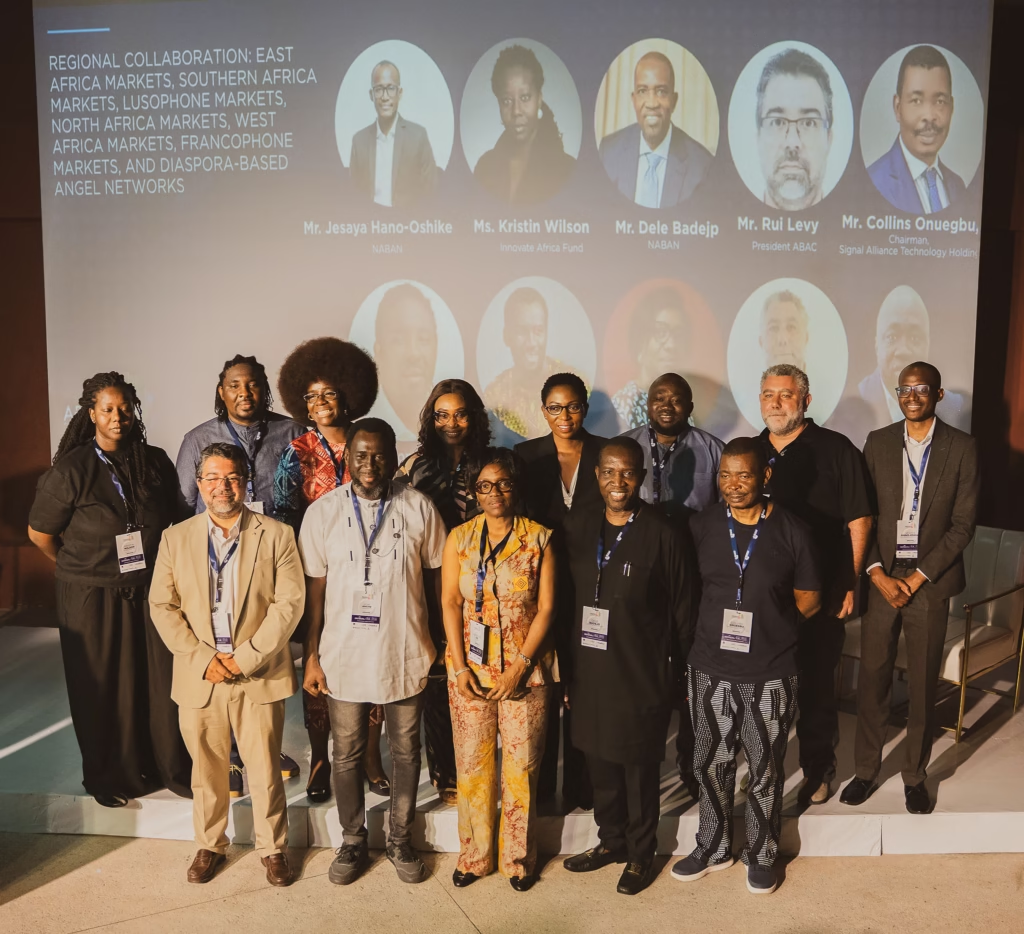Pan-African Funders and Founders: The View from Lagos, Nigeria

Introduction: “Africa Must Fund Africa”?
What happens when angel investors and startup founders from across Africa gather for a two-day meeting? The answer is: the African Business Angels Network (ABAN)’s annual Congress of 2025, held in Lagos, Nigeria this October.
Managing Partner of the Coprosperity Fund, Antony Adolf, was invited to speak on the second day of the ABAN 2025 Congress. The purpose of this post is to provide a first-hand overview and highlights of what transpired at this catalytic meeting, and why it matters to African funders and founders.
The theme for the ABAN Congress 2025 was “Accelerating Local Capital Participation,” or “Africa Must Fund Africa” for short. What does this mean? Does it mean that only African angel investors should fund early-stage startups? Or does that mean that capital of all origins is welcome in Africa, but there are particular benefits in African startups securing African funding?
There is a strong activist impulse running through these questions. Throughout the provocative and insightful panel discussions and individual presentations, it became clear that generally the speakers, both funders and founders, leaned heavily towards the second line of thought above, namely that the origins of capital matter less than the supra-capital benefits that African Angel investors provide to their startup founders.
But the key to understanding the theme of the Congress lies in understanding the diversity of perspectives that manifested themselves in the Lagos meeting. This can be achieved by surveying the panel discussions and individual presentations that took place during the Congress, to which we now turn before drawing some important conclusions.
Day One: Why Pan-African Capital Matters
Lagos is Africa’s megacity, with over 25 million people from across the continent calling it home. Small and big businesses abound, from corner eateries to oil giant headquarters. The energy of the city is palpable in every heartbeat while there, even for a short time. This ceaseless urging of urban energy set the stage for the ABAN Congress.
Hosted at the J. Randle Center for Yoruba Culture, where artefacts of Nigeria’s largest ancestral tribe are held side by side modern ones, the location harkened the theme of the Congress, namely that Africa has to put itself first when it comes to funders and founders collaborating. The lively and beautiful host, Anita Erskine (of Erskine Global Communications), brought the proceedings to a start, and introduced each of the panels and presenters for the two days.
First up, a welcome message and opening remarks by Yemi Keri, ABAN President, and Fadilah Tchoumba, CEO of ABAN, extending greetings and best wishes for the milestone two-day event. Each of them are a force to reckon with in the African angel investing community, and together they make a remarkable team leading a remarkable organization shaping early-stage investing across the continent.
The guest of honor took center stage next, Yemi Osinbajo, former Vice President of Nigeria. His speech was brief but to the point: angel investors across Africa are a key to economic development, and ABAN is at the forefront of the movement. He was eloquent and enthusiastic, mixing humility with inspiration in his remarks.
For the sake of brevity, we will not list all the speakers and presentations here, but instead offer some highlights of the day’s events. For Antony Adolf, this included a thorough presentation on “The State of Angel Investing in Africa” by Khaled Ismail, Chairman of HIMAngels. Among many other important points, he noted that the model and measure for African angel investing should not be that of the U.S., but instead that of India and Asia, where the numbers are much higher and growing faster than in Africa (for now).
Also of note, in between the speakers and panels, were “My Big Deal” presentations, or brief pitches by startups looking for funding. These offered both a break from the intense discussions and a wider window into African angel investing from the point of view of founders instead of funders. Companies presenting included Gobeba, Dawa Mkononi, Juice Me and Pharmarun. These pitch presentations were a strong reminder that African funders and founders work especially close together.
One would have wished the Congress took place over four or more days at a less intense pace, with time for question and answer periods following each discussion. On the upside, the upbeat and intense energy didn’t stop for a moment, with the audience hanging on every word of the speakers and panelists.
Day Two: Small Fish in a Big Pond
Capital from other places is welcome in Africa (and needed), that much is clear. The point of the presenters as a whole is that while capital can be sourced from anywhere, it is best deployed by local funders to local founders in order to maximize results. Namely, results in the forms of returns and relationships for investors, and funding as well as support for founders.
Day two of the Congress made this point abundantly clear, with the panel discussion on “Regional Collaboration: East Africa Markets, Southern Africa Markets, Lusophone Markets, North Africa Markets, West Africa Markets, Francophone Markets and Diaspora-based Angel Networks.” Yes that’s a mouthful, but one worth chewing on.
Antony Adolf noted that while there is a growing movement on the supply side of angel capital, with considerable support now for funders, there is not a corresponding movement on the demand side of angel capital, meaning that there is work to be done to educate and mobilize founders in attracting angel capital.
When asked about the future of cross-border investment networks, Antony Adolf summarized his thoughts as “More and more exits.” He noted that organizations like the Tanzanian Startup Association are in discussions with the Dar es Salaam Stock Exchange to provide exits for startups, but angel investors are on the sidelines of these discussions when they could be leading them.
The closing remarks were delivered by H.E. Wamkele Mene, Secretary General of the African Continental Free Trade Area (AfCFTA) via video feed. Like Yemi Osinbajo before him, Mene stressed the importance of early-stage investments by angel investors and the entrepreneurial spirit of young Africans as drivers of the continental economy, and pointed out hot barriers to trade and business development are being reduced.
Conclusion: Repatriated Capital, Pan-Africanism and The Future of African Angel Investing
Antony Adolf, Managing Partner at the Coprosperity Fund, represents a new kind of African capital funding for African small businesses. As a Canadian by nationality, he is not African by birth, but by choice. With the Coprosperity Fund, he funds African small businesses out of conviction rather than tradition.
Living in Zanzibar, Tanzania with his partner and newborn daughter, his work with the Coprosperity Fund can be categorized as “repatriated capital,” meaning capital that has found a new home on the continent, in his case Tanzania and the East African Community, with a vision of eventually going continent-wide.
What he learned at the ABAN Congress in Lagos can be summarized in a few sentences: the origins of capital do not matter as much as the support that, with angel investors, come with capital investment. “Local” capital matters not so much in terms of where funds come from, but in the “localitity” of the angel investor in terms of intellectual, social and other forms of capital that funders share with founders.
This becomes complicated when investors move from their “native” grounds to make regional or cross-border investments. But the challenges are not insurmountable, and the knowledge thereby gained can inform future deals at both the local and the continental level. And this, according to Antony Adolf, is where the future of African angel investing lies.
Pan-Africanism as a post-colonial political movement has all but failed. What we are witnessing now is the emergence of an economic Pan-Africanism based not on governments and big businesses but on networks of smaller funders and founders. The ABAN Congress in Lagos makes clear that what was once the efforts of a few vanguards is now becoming a full-fledged movement.
What shapes and purposes this movement of funders and founders takes has yet to be determined. But if the energy at the ABAN 2025Congress is any indication, it has the momentum to change the way capital is raised and deployed across Africa, if not the world, leading Antony Adolf to believe that ABAN should be nominated for the Nobel Prize in Economics.
